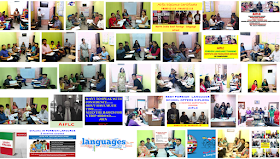work in germany - germany immigration - work visa for germany - germany job seeker visa in chandgarh punjab in india.
Immigration to Germany
Introducing the Federal Republic of Germany : Germany can be described as a typical Western European countries with its own traditions, history and values. Statistics show that the population of Germany can be currently estimated at around 80.3 million people. The dominant ethnic group is German (81%). The official language is German.
German nominal GDP per capita is estimated at around 41 513 USD. The Official currency is the Euro (EUR). Germany is a member state of the European union and the Schengen Area, which provides many benefits for its residents.
Immigration legislation states that if you are a non-citizen of the European Union and you intend to stay in the Germany in excess of 90 days consecutively or if you want to exercise business activities or work, then you must apply for a residence permit, limited or unlimited. The law currently provides several major grounds for doing so.
Immigration services
Immigration services in the Federal Republic of Germany are well developed, even though immigration policies can be very strict. The Federal Office for Migration and Refugees (http://www.bamf.de), which is responsible for immigration issues, does offer residence permits on the basis of investment, for example if you invest 250 000 EUR in a German company. Still, it may be quite difficult to obtain a residence permit in Germany, because of strict legal regulations.
Lawful Immigration
In order for immigration to Germany to be lawful, an immigrant needs to follow all the requirements laid out in the immigration law of the Federal Republic of Germany. There are several possibilities, depending on the purpose of your visit. If you are not a citizen of a visa-free country, you will need a visa in order to visit Germany. If you plan to immigrate to Europe and reside in Germany for a long period of time, exceeding 90 days – you will need a residence permit, which can be acquired on several grounds, as detailed in German immigration law.
Immigration law
The main immigration law for immigrants from non-EU member states in the Federal Republic of Germany is the Immigration Act.
Immigration Act - https://www.rlp-buergerservice.de
The Federal Office for Migration and Refugees - http://www.bamf.de
Immigration Act - https://www.rlp-buergerservice.de
The Federal Office for Migration and Refugees - http://www.bamf.de
Immigration Statistics
Immigration Statistics in Germany have been dynamic since the beginning of the 20th century. Germany was in the center of two world wars, it survived economic crisis as a result of WWII, as well as the effects of having it's borders redrawn repeatedly over the last century. Currently immigrant populations in Germany are dominated by immigrants from Arab countries (8%) and other member states of the European Union (11%) - this latter group growing rapidly due to the crisis that has been gripping southern Europe.
A Strong German economy has already provided many jobs for immigrants, which explains why Germany is an object of an interest for immigrants, despite the fact that Germany usually does not allow immigration without any reason.
Most popular cities by population
The most popular city by population is Berlin (3 336 026 people). The other two biggest cities by population are Hamburg and Munich, which together have about the same population as Berlin.
The population of Berlin has decreased by 100 000 people over last fifty years, as has the population of Munich and Hamburg. As in many other European Countries, the general level of urbanization in Germany is quite high - the majority of the population resides in urban, not rural areas.
If you want to immigrate to a European country with a strong economy and low unemployment rates (5,3% for July 2013) – Germany could be a good choice. However, it may be quite difficult to obtain a residence permit.
Migration in and out of Schengen area
The Federal Republic of Germany is a member state of the Schengen area. Countries of the Schengen Agreement have abolished passport and immigration control at their common borders and for travel between their member states. Member countries also recognize Schengen visas issued by other Schengen states. On the outer border, or upon first entry to the Schengen area, normal immigration control procedures apply, however admission to any Schengen country is considered admission to the whole Schengen area (all member countries), with no further immigration checks needed. Due to the large flow of illegal immigrants over recent decades, Germany has very strict immigration policies, and is known to conduct it's border checks very carefully.
Third-country citizens holding a residence permit may stay in the Federal Republic of Germany in excess of 90 days. Due to strict immigration policies, sometimes it may be quite hard to acquire a Schengen visa directly from Germany. A list of documents and grounds for requesting a visa can be found on the web page of The Federal Office for Migration and Refugees.
One of the options, which would allow a non-EU citizen to apply for a residence permit, would be establishing a company in Germany, investing at least 250 000 EUR and creating 5 job vacancies. This kind of investment requires quite a large amount funds, unlike the investment program in Latvia.
Residence permit
German legislation is not very flexible when it comes to the provision of residence permits for non-EU citizens. Many European countries, such as Latvia or Estonia, provide many more opportunities for potential investors or immigrants in order to qualify for a residence permit.
Currently there are several ways to obtain a residence permit in the Federal Republic of Germany for non-EU citizens: immigration of a skilled worker with at least 3 years of experience; Company formation investing 250 000 EUR and creating at least 5 jobs; getting a degree at ta German university.
History
One of the biggest waves of immigration to Germany took place in the 1960s. Because of a shortage of workers during the Wirtschaftswunder ("economic miracle") in the 1950s and 1960s, the West-German government signed recruitment agreements with such countries as Italy, Greece, Turkey, Morocco, Portugal, Tunisia and Yugoslavia. These agreements allowed the recruitment of workers from these countries for the industrial sector, which lacked qualified laborers.
Study in Europe - Read more




 |
| STUDY M.B.B.S |
Study in Europe - Read more


 |
| Study in Canada - Bachelor , Master , Phd |
 |
| Study in NewZealand - Bachelor , Master , Phd |
 |
| Study in Australia - Bachelor , Master , Phd |

























No comments:
Post a Comment